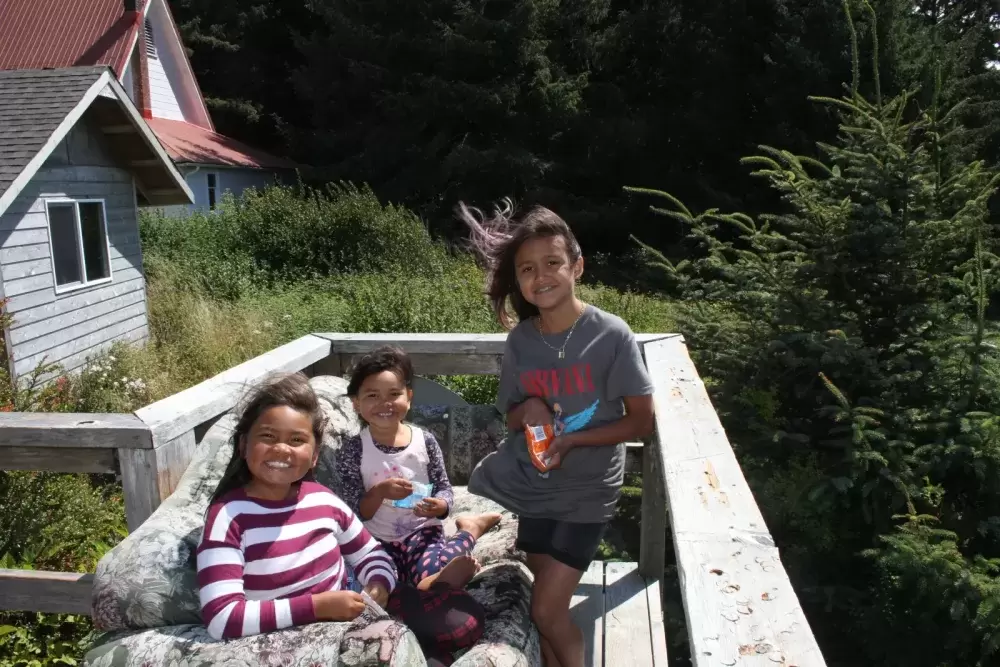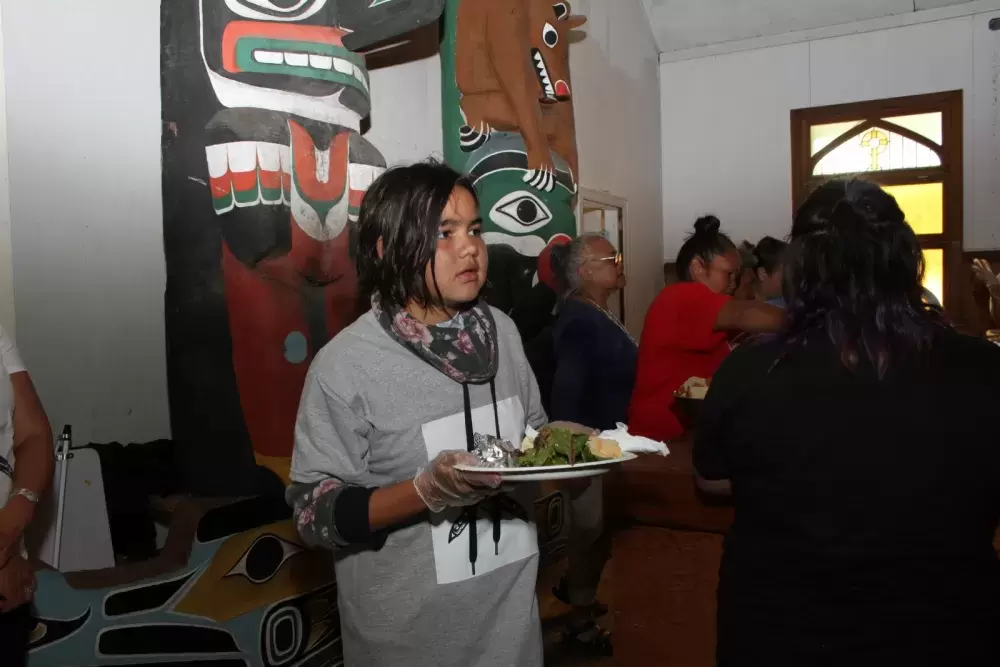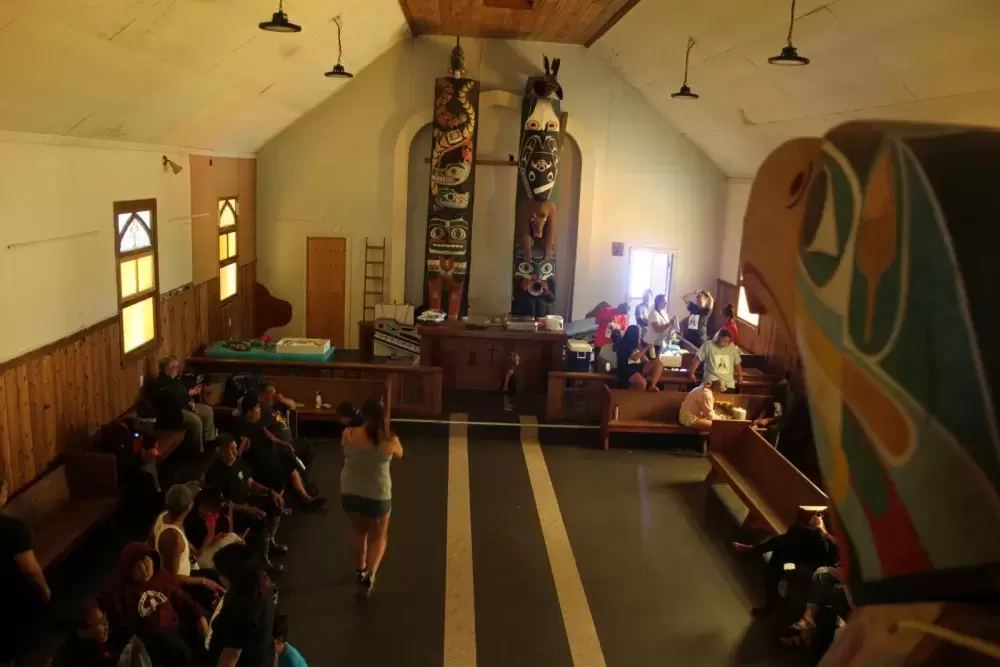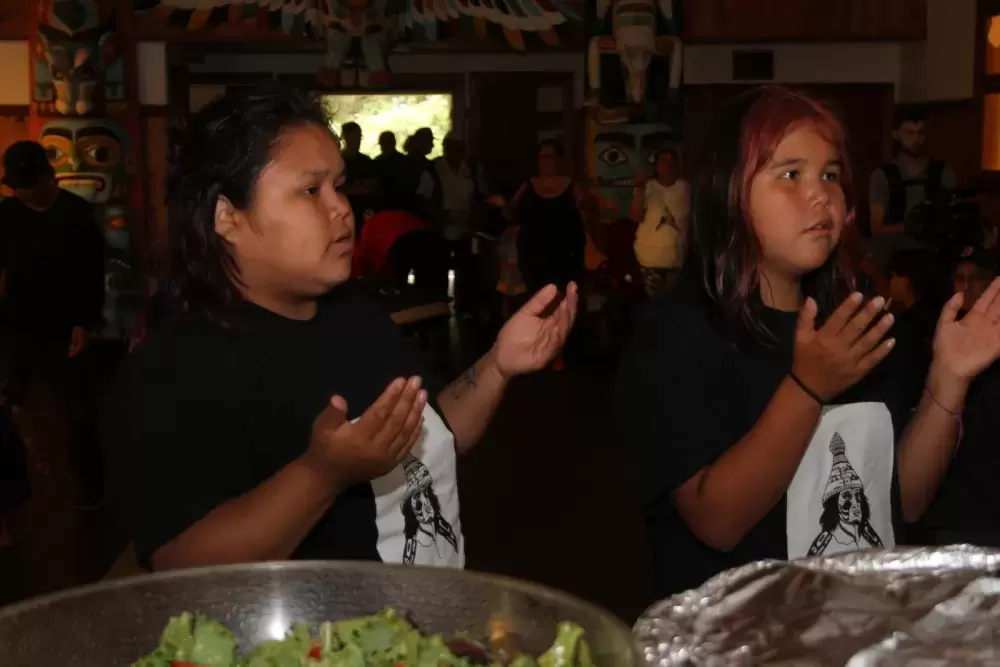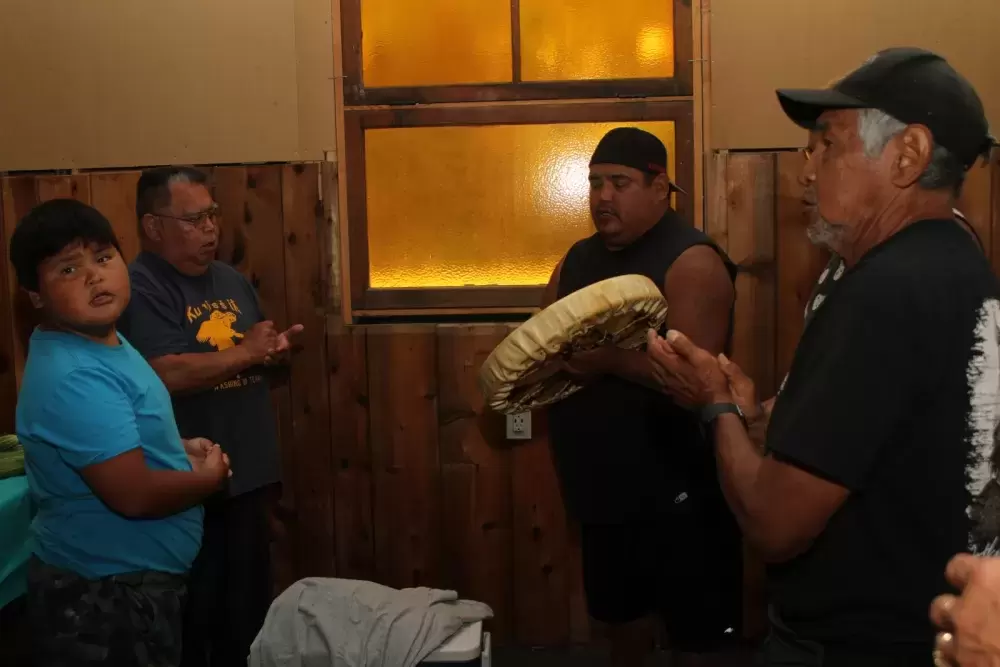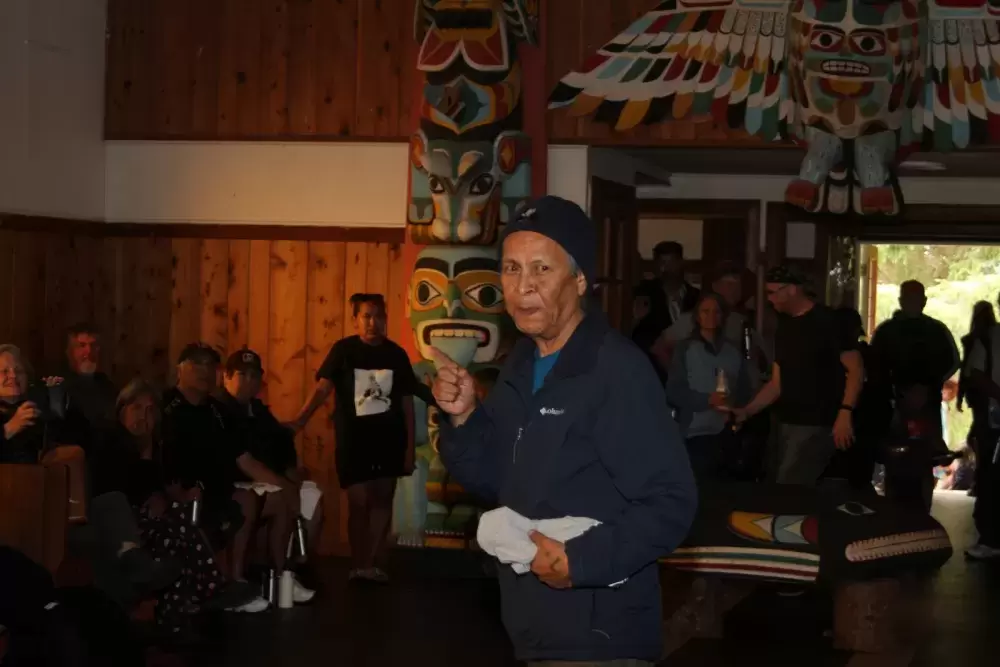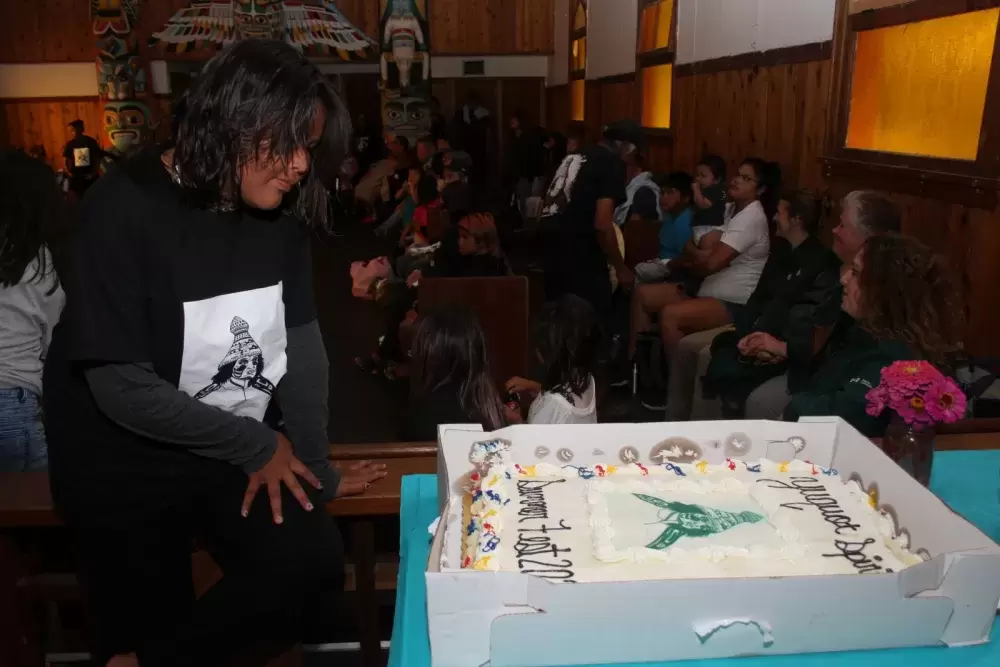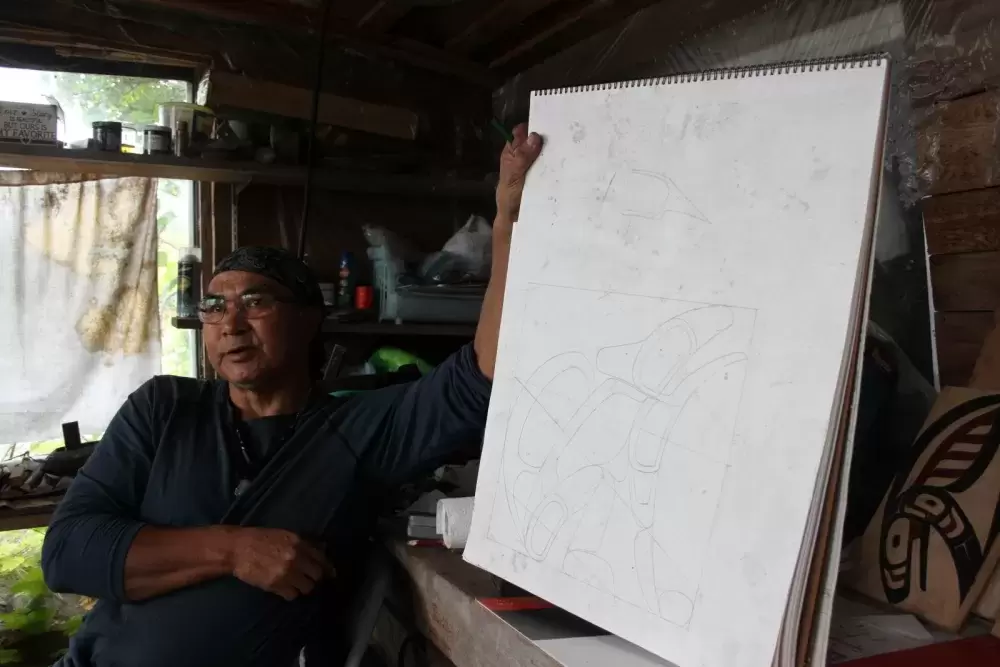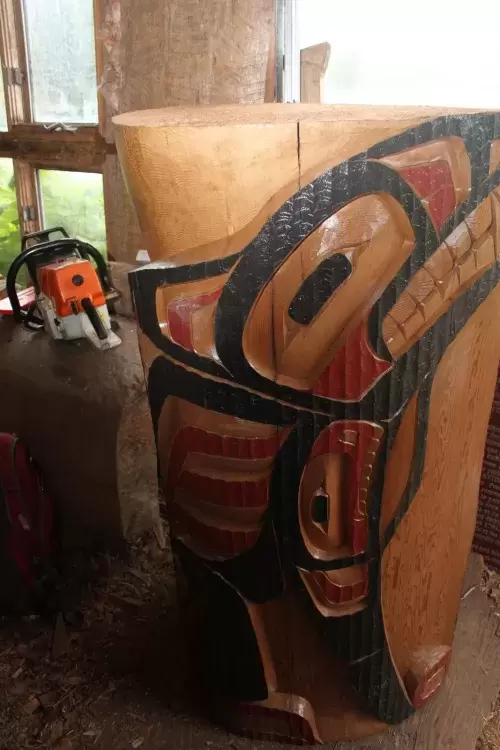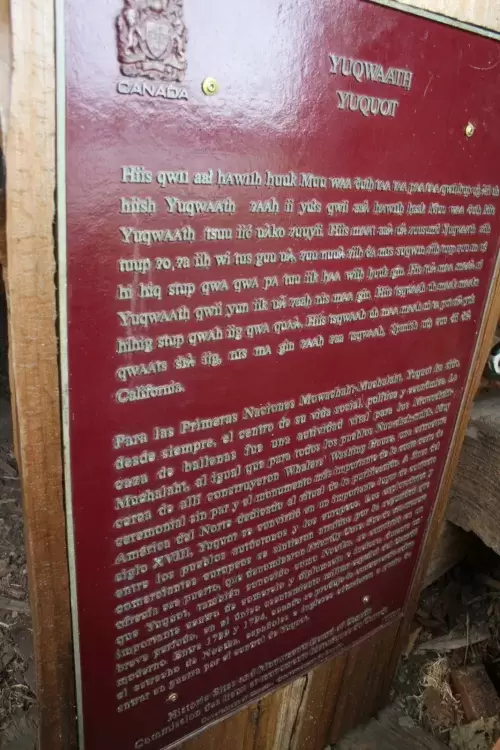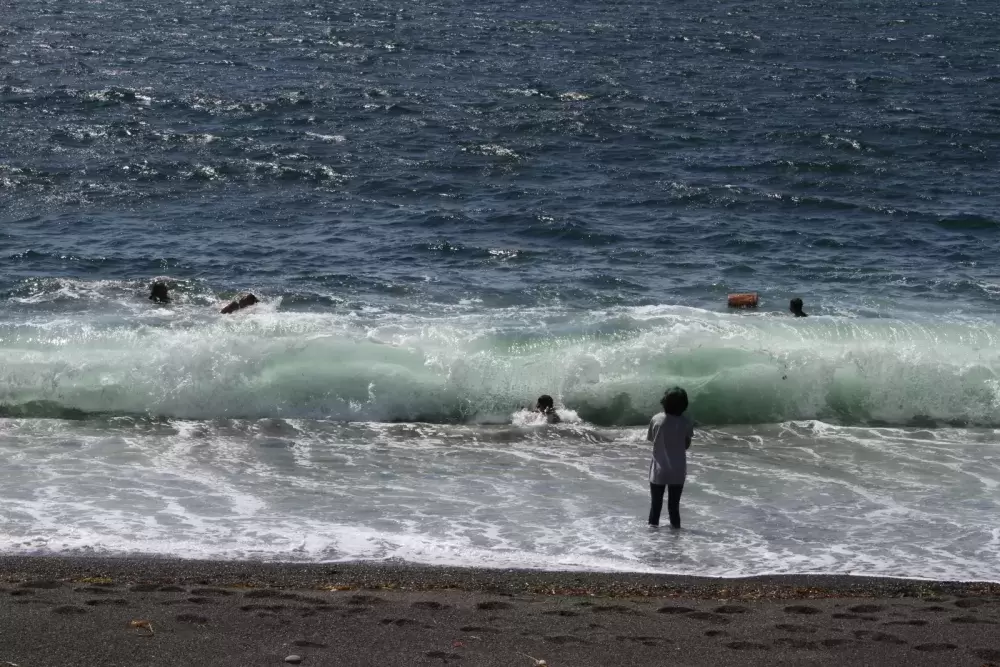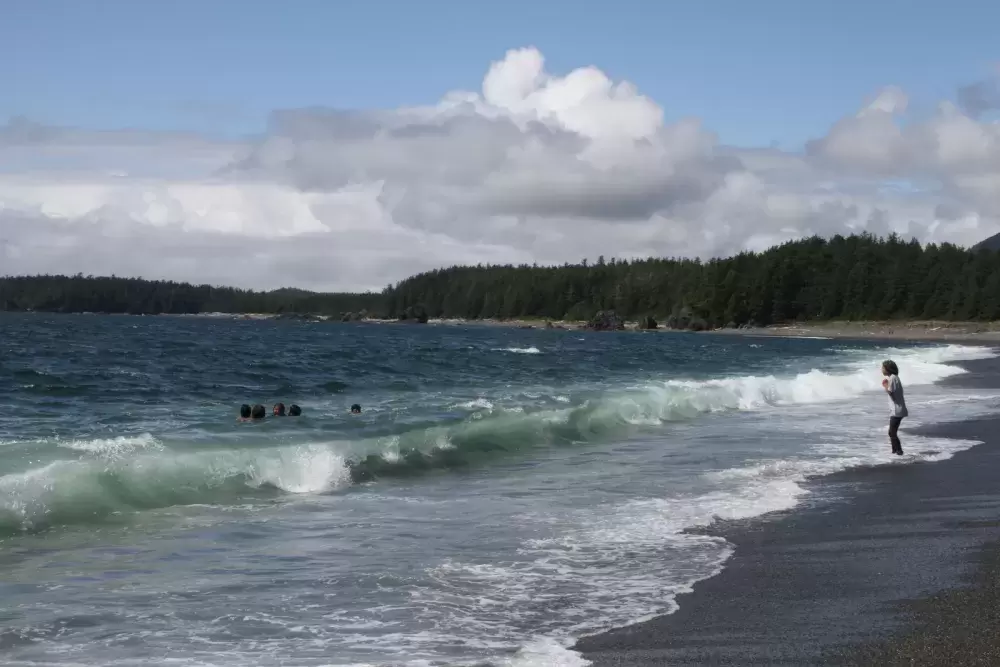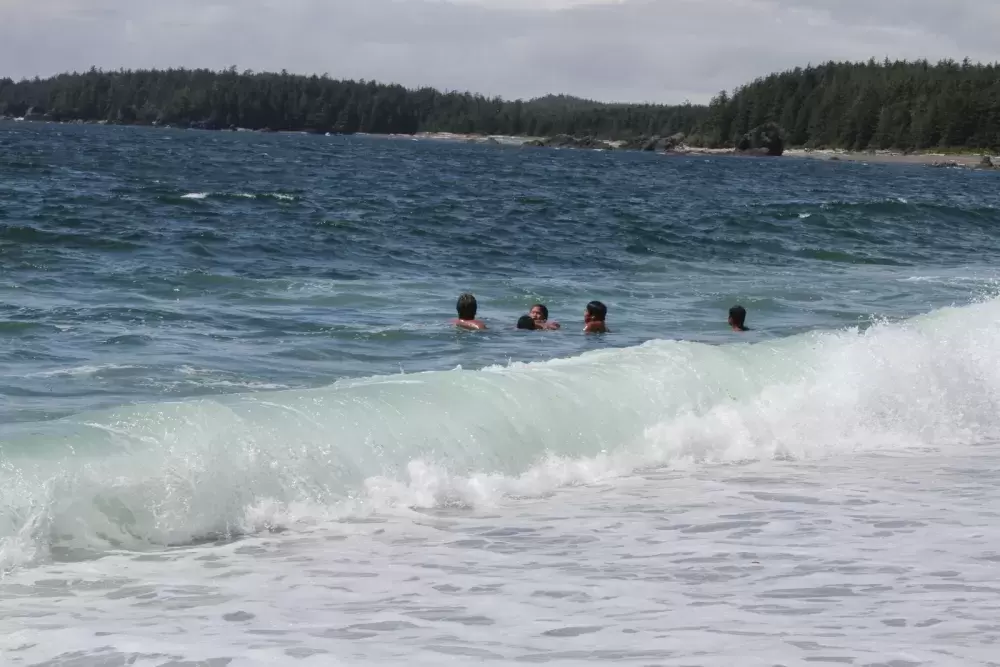The most people in two years gathered at the traditional home of the Mowachaht in early August with the return of the First Nation’s Yuquot Spirit Summerfest.
As Mowachaht/Muchalaht members resumed their annual camp out at the Nootka Island site, visitors filled the MV Uchuck to visit the First Nation’s ancestral village on Saturday, Aug. 7. The crowd of over 100 didn’t approach Yuquot’s historical population, but as Tyee Ha’wilth Mike Maquinna welcomed all to his traditional home in the village church, he noted that the Yuquot community gathering was the first to be held since the COVID-19 pandemic began in March 2020.
Yuquot has always been the centre of the Mowachaht/Muchalaht’s social, economic and cultural world, and at one time was the capital of Nootka Sound’s 17 tribes. Archeological digs have uncovered evidence of continual habitation at the site for over 4,300 years, and Yuquot, which is also known as Friendly Cove, served as the focal point of West Coast First Nation trade with Europeans during the early years of contact. Demand for pelts and other resources in Mowachaht/Muchalaht territory brought Great Britain and Spain to the brink of war during the Nootka Sound Controversy of 1789-94.
In the early 1970s the First Nation moved its reserve community to near Gold River, but the Williams family remained at Yuquot, and in recent years the historical perspective of the site has shifted to consider those who lived there for millennia. This change in perception is evident on a cairn that stands by the entrance to Yuquot at the southern tip of Nootka Island. A plaque remains there from when the location was originally designated a national historic site in 1923.
“It says nothing about the people,” said Margarita James, president of the Land of Maquinna Cultural Society. “It didn’t acknowledge the Mowachaht people or Chief Maquinna on that original plaque.”
At the request of former Ha’wilth Ambrose Maquinna, this introductory information about Yuquot began a process of revision in the late 1990s. By 2002, two new plaques were produced by the Historic Sites and Monuments Board of Canada to provide a more rounded version of history. One plaque bears a message in Mowachaht followed by a translation in Spanish, the other carrying the same caption in English and French.
“Whaling was a vital part of the life of the Mowachaht-Muchalaht, and of all the Nuu-chah-nulth peoples,” reads the 2002 plaque. “Near here once stood the Whalers’ Washing House, a unique ceremonial structure and the most significant monument to a purification ritual on the West Coast of North America.”
While the community and visitors gathered in Yuquot’s church, carver Sanford Williams was working on pieces to carry the plaques in his work shed by the shore. The carvings show a wolf standing up, howling at the moon over three people who represent the clan of the wolf, explained Williams.
“The wolf acts in our territory as a protector, a protector of the land,” he said. “It was one of my ideas because the q#ayac’iik, the wolf, in our culture is used quite a bit, like in potlatches to keep kids quiet when the wolf dancer has his mask on. Plus it’s part of my family crest, so I use the wolf a lot.”
The carvings are being formed from a cedar log Williams found on Yuquot’s beach.
“It’s really hard to find a good log with no knots, so it was a matter of looking around on the beaches for a good log,” he said. “The high tides are really big in the winter. I just scour the beaches every time I come out here.”
A third plaque from the Canadian monuments board has also sat in the Yuquot church for nearly 20 years, but will soon be mounted on a carving made by Patrick Amos. This plaque describes part of the Maquinna legacy.
“Two distinguished chiefs who led the Mowachaht people of Nootka Sound at the end of the 18th century bore the name Maquinna. The first, skilled diplomat, helped establish the Mowachaht among the richest fur traders on the west coast, at a time when their land was threatened by Britain and Spain,” reads the plaque, which is presented in Mowachaht, English and French. “The second Maquinna had the more difficult task of trying to maintain his people’s prosperity in the face of declining fur resources and increasingly violent conflict between the Mowachaht and Europeans.”
Williams expects the carvings he’s working on will be completed by early September, although a permanent location for them is yet to be determined. He hopes that visitors will “take the culture with them” after seeing the finished pieces.
“Our culture needs to be out there,” said the carver, who usually spends his summers in Yuquot. “A lot of people out there need to start knowing our culture. I’m hoping that they’ll take that with them and remember it, or pass it around of what they’ve learned out here.”

